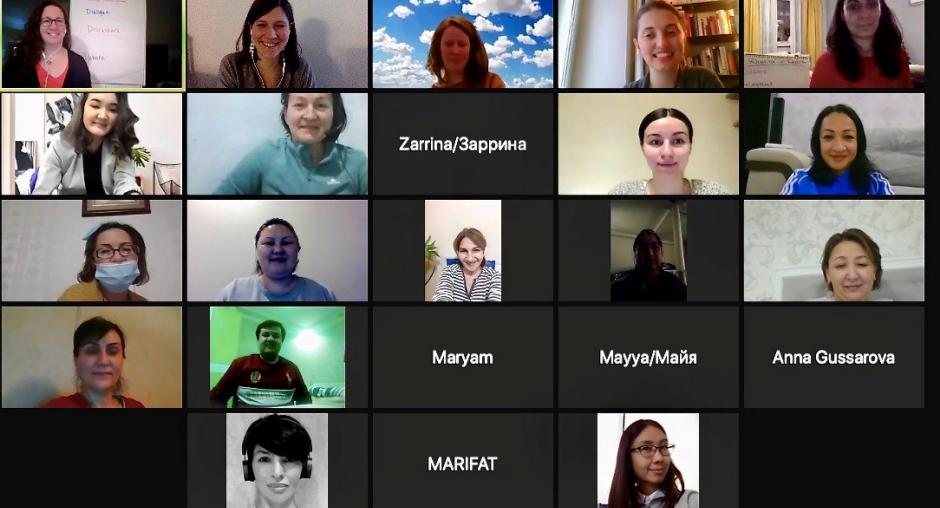OSCE train-the-trainer regional seminar to build capacities of women civil society leaders in Central Asia to prevent violent extremism

A regional train-the-trainers seminar is guiding twenty future facilitators (18 women, 2 men) in learning how to train women leaders in civil society to prevent violent extremism. The Action against Terrorism Unit of the OSCE Transnational Threats Department organized the seminar in co-operation with OSCE field operations in Central Asia.
The seminar is part of the OSCE’s Leaders against Intolerance and Violent Extremism (LIVE) Initiative, which emphasizes the role civil society plays to help identify and address grievances that make individuals more vulnerable to the influence of violent extremist groups.
The Initiative features three distinct training courses designed to meet the specific needs of youth, women and community leaders and promote context-specific efforts against violent extremism developed and led by civil society at the grassroots level.
To bolster the quality of the training courses for women leaders in Central Asia, a LIVE train-the-trainer seminar was launched in January 2021. Held online due to the COVID-19 pandemic, the nine-week course features two sessions per week that focus on strengthening participants’ facilitation skills and awareness of concepts covered by the LIVE curriculum. Topics include: trends in violent extremism; policy development; media literacy; increasing the share of positive narratives online; women leadership; security awareness; and a do-no-harm approach in prevention work.
“Through the seminar, future facilitators build their capacity to engage with civil society and to make a lasting impact in addressing violent extremism,” said Anara Jeenbekova, Senior Programme Assistant in the OSCE Programme Office in Bishkek. “Being held at the regional level, the seminar is also a chance for facilitators to expand their discussions and knowledge beyond the national context.”
The seminar is the second in a series of train-the-trainer seminars tailored to Central Asia. At an earlier seminar, held from August to November 2020, twenty participants (12 women, 8 men) from Kazakhstan, Kyrgyzstan, Tajikistan, Turkmenistan and Uzbekistan learned how to use the LIVE curriculum to provide local training for youth leaders.
“The LIVE train-the-trainers seminar helps civil society leaders in Central Asia like me empower young women and men,” said Jamilya Nurkanova, founder of the Kazakhstan-based Center for Gender Security in Central Asia and one of the participants of the train-the-trainer seminar held in 2020. “Through this we can show how youth should no longer be seen solely as a group to be taught, but as a group that can teach and be fully included in the decision-making and implementation process on the ground.”
Facilitators in South-Eastern Europe took part in similar LIVE train-the-trainer seminars in 2018 and 2019. They have proceeded to train local youth and women leaders in co-operation with the OSCE field operations in Bosnia and Herzegovina, Kosovo, Serbia, Montenegro and North Macedonia.
